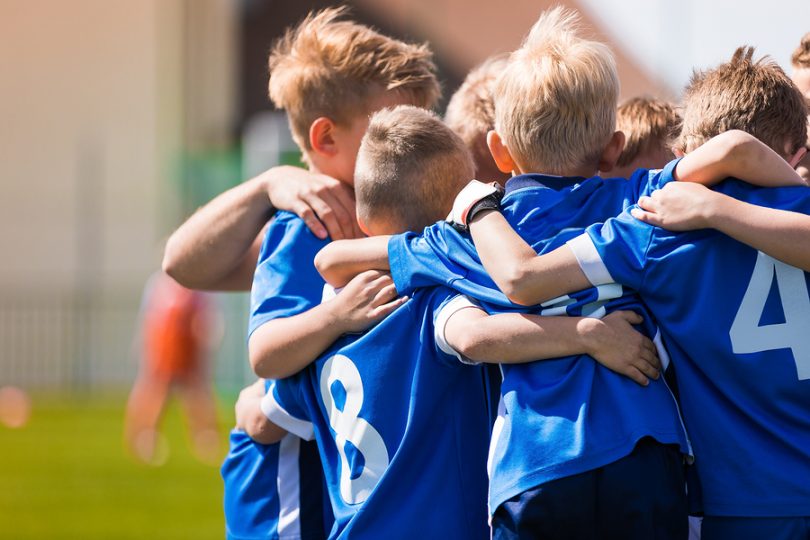Bumps and bruises are normal for kids who play sports. But concussions continue to be a huge concern for parents. And when your child experiences a concussion it can be a frightening and confusing experience for everyone involved.
Concussions are serious injuries and it is important for parents, teachers, coaches and the public to be aware of the basics in recognizing and managing concussions.
What is a concussion?
A concussion is a type of traumatic brain injury (TBI). They can be caused by a direct blow to the head, or a hit to the body resulting in a sudden jolt to the head. This trauma results in mechanical stresses to the brain’s cells causing many biochemical changes in the brain. This ultimately results in the brain operating at a sub-optimal level which the patient experiences as a wide range of symptoms.
While most concussions do not result in loss of consciousness (or a blackout), it can happen. It’s also important to keep in mind that symptoms may sometimes not be obvious for days after the actual injury, so when suspicious, you should continue to check with the child regularly to make sure that they are feeling okay.
While headaches are certainly the most common symptom, patients with a concussion usually have a unique mixture of symptoms which sometimes excludes headaches.
Common concussion symptoms
- Headaches
- Confusion
- Difficulty concentrating / Fogginess
- Memory problems
- Nausea / Vomiting
- Dizziness
- Fatigue / Sleepiness / Sluggishness
- Blurry vision
- Irritability / Moodiness
- Light sensitivity / Sound sensitivity
- Problems sleeping
- Generally, “not feeling right”
If any one of these symptoms are present after a potential injury, it is important to play it safe and get it checked out. For some kids, headaches will be the prominent symptom. For others, it could be dizziness or balance deficits. And yet others may experience mostly emotional symptoms, or cognitive difficulties including memory and attention problems.
Still, there are things you should look out for that can indicate a more serious condition—in particular a brain bleed, which can be life threatening. If any of these are present, call 911, or get the child to the emergency department immediately.
Signs for a more serious injury
- Significantly worsening symptoms
- One pupil larger than the other
- Clear drainage from the nose or ear
- Significant drowsiness / Inability to wake up
- A worsening, unrelenting headache
- Significant difficulty thinking clearly or remembering things
- Slurred speech
- Weakness in an arm or leg, numbness or tingling
- Poor coordination
- Repeated vomiting / Nausea
- Convulsions / Seizures
- Increasing confusion, restlessness, agitation
- Loss of consciousness
- Neck pain
Again, if there is concern that there is the possibility of a more severe brain injury or neck injury, call 911 or get the child to the Emergency Department immediately.
It’s important to act fast, as delay in medical care can result in significant injury.
What do I do if I think my child has a concussion?
The number one priority in concussion management is to ensure that there is not a second head injury while the person is recovering.
If there is a second impact prior to the brain’s full recovery the symptoms can become much worse, and last significantly longer. Two consecutive injuries can also result in Second Impact Syndrome which is a serious condition that can result in permanent brain damage. For this reason, the child should not return to athletics or other higher-risk activities until it has been confirmed that their brain has fully recovered and healed. When in doubt, keep them out!
It is important to have your child evaluated by a physician if there is concern for a concussion. This can be done by their pediatrician, the emergency department or an urgent care setting. Once a concussion is diagnosed it is important for the child to rest, both the brain and body. We usually recommend resting the brain as much as reasonably possible for at least 48 hours after the injury. This usually means staying home from school until a physician says it’s okay to return. The duration of rest is highly variable depending on the progression of the child’s symptoms, and on the physician’s clinical assessment.
While implementing rest, it is generally a good idea to maintain a quiet setting with very low stimuli. This does not mean being isolated in a dark room for days, as that can make anyone feel terrible. But it is a good idea to reduce screen activities to less than 2 hours a day (no more than 30 minutes per session). It is also a good idea to avoid highly stimulating environments such as music concerts, movie theaters and sporting events until a health care provider says it’s okay.
It is also important to be patient with your child and provide them with the calm support that they need.




